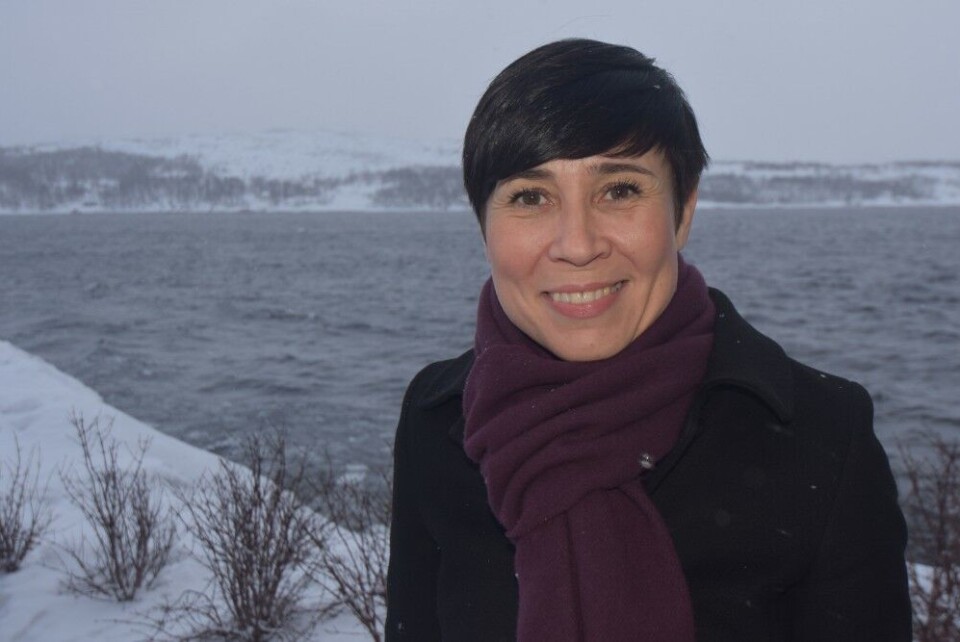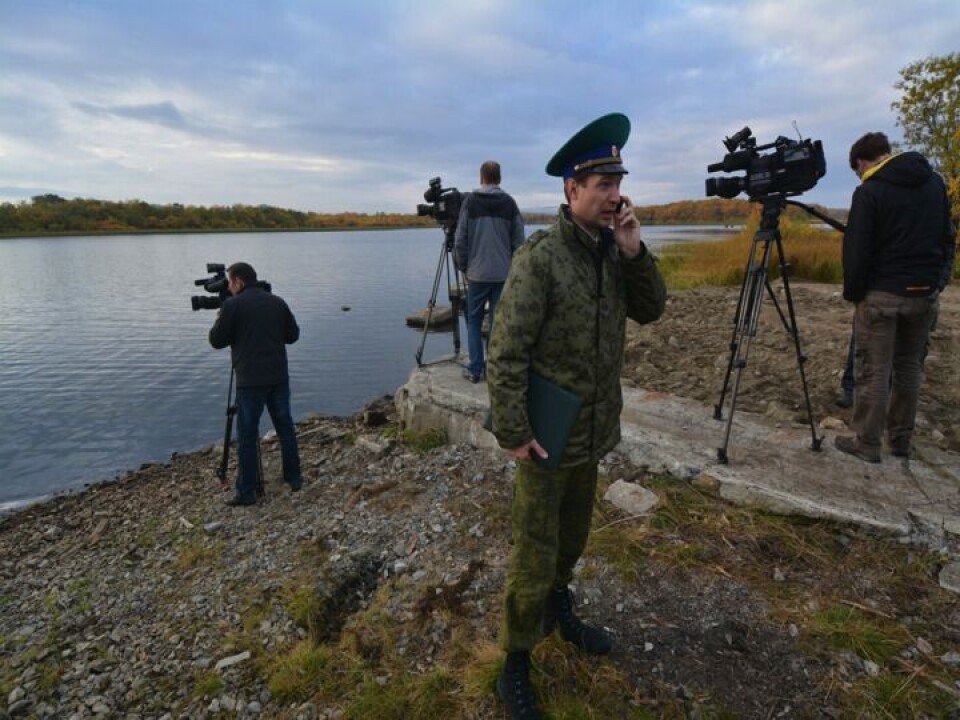
Civil society and media freedom on agenda as Norway takes over chair of the Barents Euro-Arctic Council
"We look with great concern at the difficult working conditions for civil society in Russia, especially the conditions for NGOs, the media and indigenous peoples," says foreign minister Ine Eriksen Søreide.
Norway will be chairing the Barents Euro-Arctic Council in 2019-2021. Sweden’s new foreign minister, Ann Linde, handed over the responsibility to her Norwegian colleague at the council’s bi-annual meeting in Umeå on Thursday.
To the Barents Observer, Ine Eriksen Søreide says NGOs, media and indigenous peoples can expect strengthened support.
“Norway is very focused on the conditions for civil society in the Barents Region. Supporting and strengthening civil society will be important during the chairmanship period,” the foreign minister assures.
Eriksen Søreide looks with concern to what happens with non-governmental organizations (NGOs) on the Russian side of the border in the Barents region.
Supporting and strengthening civil society will be important during the chairmanship period.
Since President Putin singed the so-called “foreign agent law” and it came into force in 2012, more than 160 NGOs are blacklisted. A criteria to be branded foreign agents is for the organization to receive money in one or another way from abroad and work with things the government considers to be political.
Once on the list, the organizations see their domestic reputations tarnished, they’re staff harassed and the funding shrinking. Many groups give up and stop working.
Consequently, the original people-to-people cooperation between Russia and its northern Scandinavian neighbours is weaker, while the official structures with employees in the public sector still stands.
Ine Eriksen Søreide expresses concern “especially for the conditions for NGOs, the media and indigenous peoples.”
“We regularly address this in our dialogue with Russian authorities,” she says.
In Barents Russia, there are now nine NGOs labelled as “foreign agents”. In Murmansk region, that includes the LGBT-friendly Maximum, the environmental group Bellona Murmansk and the Humanist Youth Movement . In Arkhangelsk region it is the LGBT-friendly Rakurs organization and in Karelia the youth group Nuori Karjala and the Petrozavodsk-based Northern Environmental Coalition. Another Karelian organization listed is the Association of Legal Expertise Partnership Union. On the tundra in Nenets Autonomous Okrug, the indigenous peoples group Yasavey Manzara is declared «foreign agents.» In the Komi Republic, Memorial Commission on protection of Human Rights is listed.
Other well-known groups in Russia are Memorial, Committee Against Torture, Transparency International-Russia, Nordic Council of Ministers’ office in St. Petersburg, Golos Association, Levada Centre, Dynasty Foundation, Bellona St. Petersburg, Regional Press Institute, the Freedom of Information Foundation and Moscow School of Civil Education.
Soldiers’ Mothers and Kola Eco Centre are two organization that has managed to be removed from the list.
Media suppression
In response to the current wave of media suppression in Russia, the Norwegian foreign minister wants to use the chairmanship period of the Barents Euro-Arctic Council to support cross-border journalism.
“We will continue to support press freedom and media’s opportunity for free cross-border journalism,” Ine Eriksen Søreide tells.

“The Ministry of Foreign Affairs will strengthen support for projects via the Barents Secretariat to for example Barents Press and the Svarte Natta conference,” she says.
Barents Press is an unformal network of journalists from different media in northern part of Norway, Finland, Russia and Sweden. Svarte Natta is a bi-annual journalist conference in Tromsø, Norway.
We will continue to support press freedom and media’s opportunity for free cross-border journalism.
Lavrov not present
Human rights seminars is another area that will get support, Eriksen Søreide says.
The Barents Council meeting in Umeå was co-arranged with EU Arctic Forum, a high-profile event with seven participating foreign ministers and one EU Commissioner.
A big drawback for the Barents Council meeting, though, was the absence of Sergey Lavrov. The Russian Foreign Ministry instead participated with his deputy, Aleksandr Grushko.
Although much of the focus in Umeå highlighted the broader Arctic cooperation, the Norwegians consider the Barents cooperation to be a cornerstone in the regional part of cooperation in the Arctic.
Earlier this week, Markku Heikkilä, a Finnish expert on both the Barents- and Arctic cooperations said in an interview with the Barents Observer that arranging the Barents Council meeting as a side-event to the EU Arctic Forum was a serious downscaling of Barents.
Barents, a cornerstone in Arctic cooperation
Gøril Johansen is Norway’s representative in the Committee of Senior Officials of the Barents Council.
“For Norway, the Barents Council meeting and the hand over of the chairmanship was the main purpose of the visit to Umeå,” Gøril Johansen says.
“We generally profile the Barents cooperation as a ‘best practice’ for international cooperation in the Arctic. This was also the message of the foreign minister during the panel discussion at the EU Arctic Forum,” she says.
In the official brochure for the coming two years the Norwegian chairmanship lists other priorities as well: Health, people-to-people contact and knowledge, with a view to building a stronger and more resilient Barents region are some of the priorities listed.
You can help us report about the Barents cooperation…
…. we hope you enjoyed reading this article. Unlike many others, the Barents Observer has no paywall. We want to keep our journalism open to everyone, including to our Russian readers. The Independent Barents Observer is a journalist-owned newspaper. It takes a lot of hard work and money to produce. But, we strongly believe our bilingual reporting makes a difference in the north. We therefore got a small favor to ask; make a contribution to our work.
















